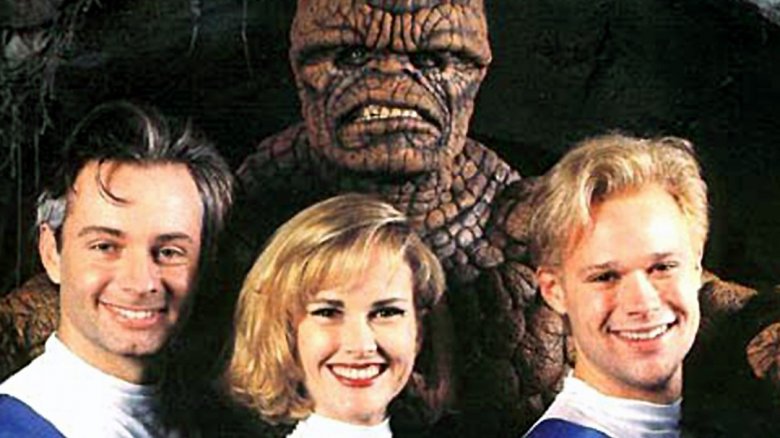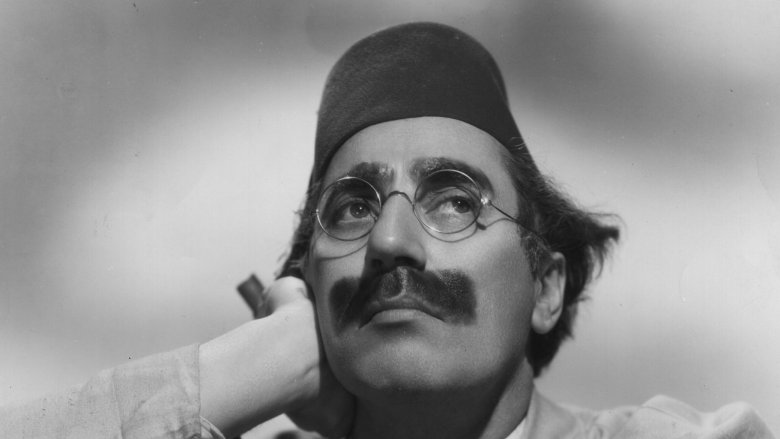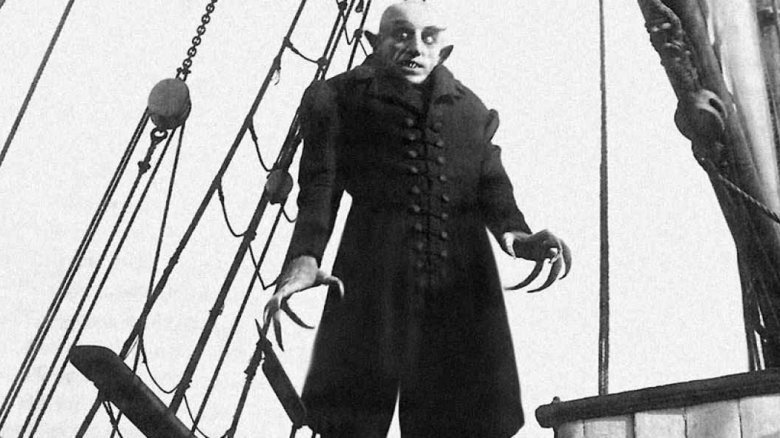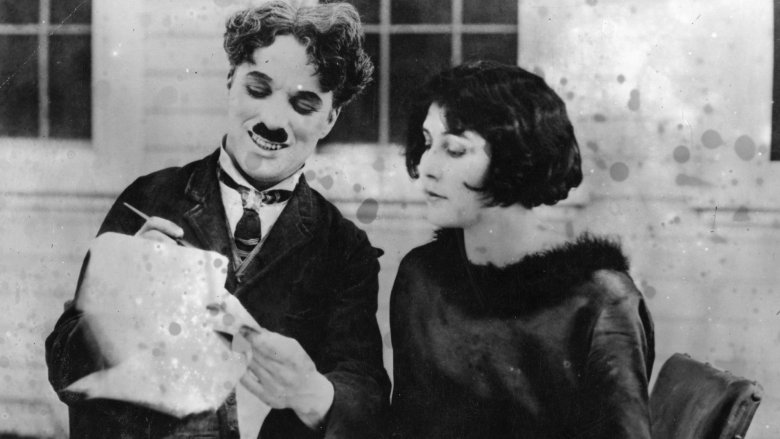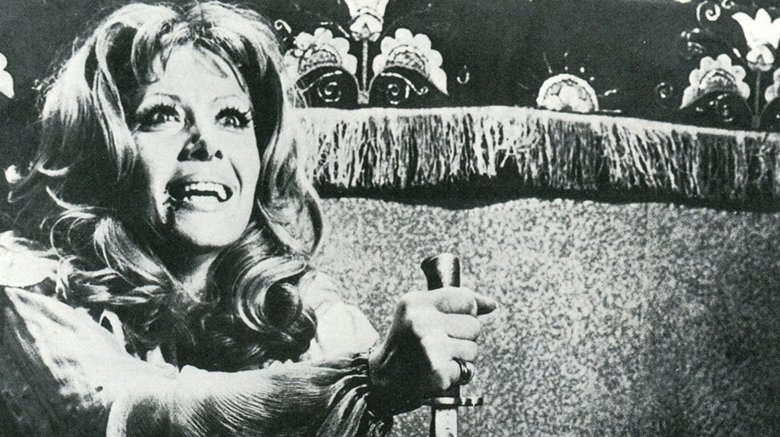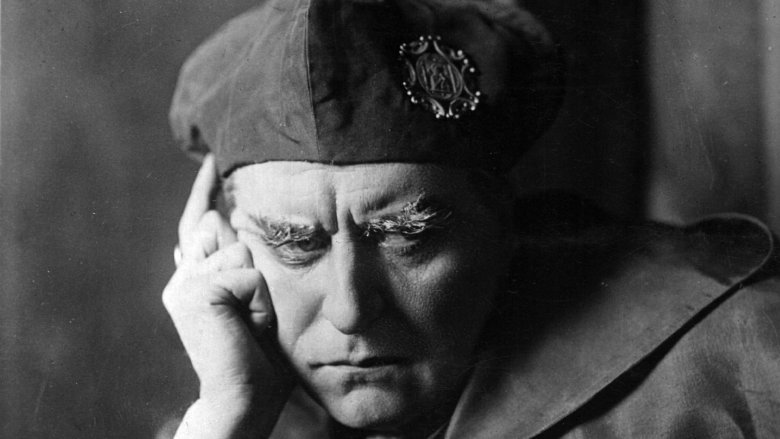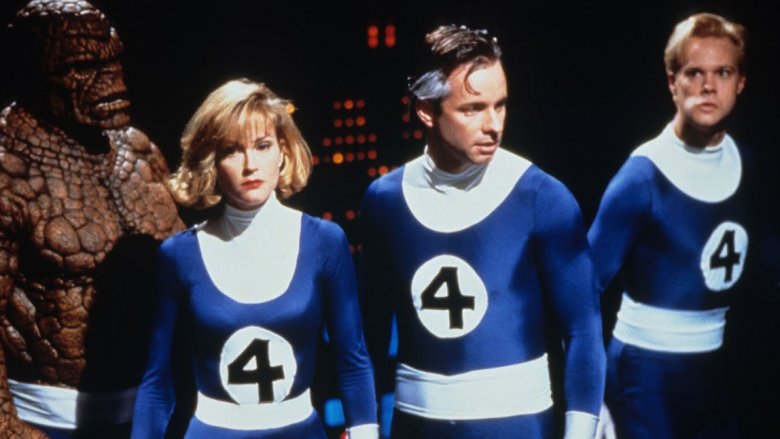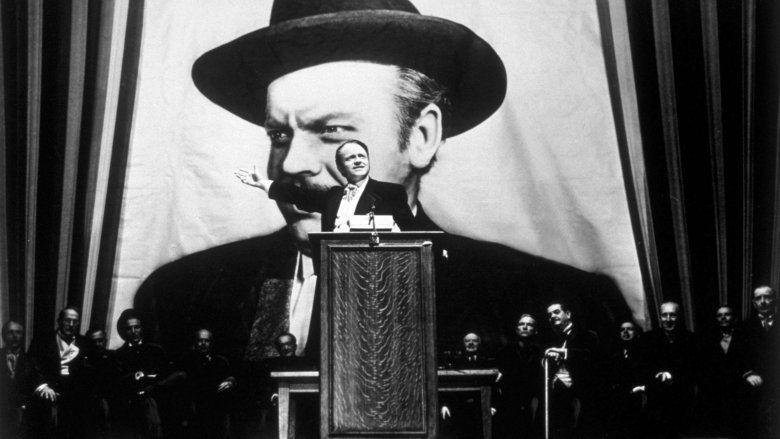Movies That Were Recalled And Destroyed
Considering we live in an age where it's nearly impossible to scrub embarrassing photos of ourselves from the internet permanently, the idea of recalling and then erasing something like a film from existence is kind of ridiculous. However, as we're about to discuss, this is something that, while rare, has occurred at least a couple of times before, often for hilarious reasons.
Humor Risk
Humor Risk is considered to be the film debut of legendary American comedy juggernauts the Marx Brothers. A short film released in 1921, little is known about it save for the fact it reportedly sucked so bad and so hard that Groucho Marx is rumored to have destroyed the only known copy in existence.
The story goes that the film was screened only once, supposedly to a rowdy crowd of teenage boys described by Groucho, in an interview where he may or may not have been serious, as "backwards." These boys reportedly kicked up such a fuss and made fun of the film so much that the elder Marx brother destroyed the film in a fit of petulant anger. The veracity of this tale is sadly difficult to ascertain, and it's alternatively rumored that the film was simply lost, with one version of events suggesting the only print was left on a bus.
All we know for sure is that the film never saw the light of day again and that a copy has never been found, meaning that if it wasn't destroyed on purpose, it was almost certainly done so by accident.
Nosferatu
Considered by film buffs to be a masterpiece of early cinema and one of the most influential horror movies ever made, Nosferatu was amongst the first films to adapt the story of Count Dracula to the big screen. The problem was, Bram Stoker's widow never gave anyone permission to do this, and the first thing she did after the film came to attention was sue the crap out of Prana Film, the studio that released it. Rather than fight the issue in court, Prana Film heroically declared bankruptcy to avoid paying Stoker's widow.
When the courts ruled that the film was an obvious and blatant rip-off of Stoker's novel with some of the names changed (early prints of the film literally referred to Nosferatu as Dracula), they ordered that every copy be destroyed. An order that was carried out so thoroughly, it's believed only a single copy of the film survived the purge, and this only due to the fact it was shipped to America where the copyright for Dracula had recently expired. This copy then circulated over the coming decades, slowly building up a cult following until the copyright on the Dracula novel expired back in Europe.
Superstar: The Karen Carpenter Story
Superstar: The Karen Carpenter Story is a short film released in 1987 that chronicles the final years of singer Karen Carpenter's life. Uniquely, the film, rather than using archive footage or actors, was realized almost entirely with Barbie dolls who are manipulated on tiny sets painstakingly modeled after their real-world counterparts.
Although the film was intended to provide a sympathetic overview of Carpenter's life and the struggles she faced, especially the anorexia which eventually claimed her life, it was decidedly less kind to her family. Carpenter's parents for example were portrayed as overbearing, overprotective prudes while the doll of her brother Richard was very clearly all kinds of gay. Richard took exception to this and promptly sued director Todd Haynes for unlicensed use of The Carpenter's music.
Richard won his lawsuit and virtually all copies of the film were quietly destroyed while Haynes himself was banned from ever airing the personal copy he had tucked away. This didn't stop resourceful fans; today, it can quite easily be found on YouTube because of course it can.
The Big Boss - Mandarin cut
Regarded as the film that made Bruce Lee famous, at least in Asia, The Big boss is your standard 1970s Hong Kong action movie and features all of the Bruce Lee staples fans would eventually come to expect in his movies, such as him punching someone's head in half with a saw.
If you don't recall ever seeing a movie where Bruce Lee literally split someone's wig in half, that's not surprising considering the original far more violent cut of The Big Boss was effectively destroyed by Hong Kong censors. Known as "The Mandarin Cut," this more complete version of Bruce Lee's first major film was more violent and featured, amongst other things, an extended scene of Bruce Lee having loud, bed-shaking sex with a prostitute. This scene and countless others were altered or cut wholesale from the movie and left on the cutting-room floor. Because of this, the original version of The Big Boss no longer exists, and it's highly unlikely Bruce Lee fans will ever see a complete version of the film with all of the cut content put back in, largely because nobody knows if it still exists.
A Woman of the Sea
Charlie Chaplin wasn't a man known for making bad films, which is what makes A Woman of the Sea so damned intriguing. As a silent film produced by Chaplin himself, we know precious little about it, save for that fact it was supposedly immaculately shot but ultimately boring with little plot to speak of.
The movie was reportedly screened only once without Chaplin's permission or knowledge to a private audience of critics and friends of the director in 1926. Furious that the director had gone behind his back, Chaplin refused to release the film publicly and hid all copies away. In 1933, Chaplin erased the film from existence completely by setting all of the copies on fire purely so that he could write the entire film off as a loss for tax reasons. Chaplin's widow doubled down on this some 58 years later in 1991 by burning what remained of the film's promotional material, again just to claim it as a tax loss.
Nobody Ordered Love
A lost British film from the 1970s that is highly sought after by the British Film Institute, little is known about Nobody Ordered Love save for the fact the plot follows the tumultuous production of a fictitious WW1 epic called The Somme. Classified as a drama, the film ends with the fictitious film within the film being "accidentally" destroyed by an angry producer seeking revenge.
In a bizarre example of life imitating art, the director of Nobody Ordered Love, Robert Hartford-Davis, is likewise rumored to have grown frustrated with an executive from the studio financing the film and had his movie "accidentally" misplaced and later destroyed. The story goes that Hartford-Davis was annoyed with the poor early critical reception the film received as well as the lack of promotion the studio did on its behalf, and, in retaliation, he simply took all of the prints and moved to America. These prints then sat in his closet until he died, at which point, as per his will, they were unceremoniously thrown into the trash.
Henry VIII
It's a testament to the enduring legacy of William Shakespeare, that centuries after his death his stories continue to be endlessly adapted for the silver screen in new and interesting ways. Arguably one of the more unusual film adaptations of the Bard's work is a 1911 film based on a then recent stage adaptation of Henry VIII directed by Herbert Beerbohm Tree and William Barker.
You see, to maximize the hype surrounding the film and sell it as a legitimate art form, Barker boldly claimed that production was so lavishly expensive that no single distributor could possibly afford to buy it outright and that he would instead only be selling the rental rights. Additionally, Barker announced, to ensure fans would only see a "pristine" copy of the film, he'd personally destroy all 20 copies.
True to his word, Barker personally set ablaze every single copy of the film in existence in front of a large crowd of reporters a short while later to ensure it'd never again see the light of day.
Fantastic Four - Unreleased 1994 film
Famously filmed on a budget of $1 million just so that the guy who owned the rights to the Fantastic Four at the time, Bernd Eichinger, could keep ahold of them for a few more years, the 1994 Fantastic Four film was never officially released, being unexpectedly cancelled just a few weeks before its official premier. Since then, however, low-quality bootleg copies of the film have found their way onto both the internet and DVD.
According to legend, the film was so bad that the then CEO of Marvel Entertainment Avi Arad bought the rights to the film moments after seeing an advanced copy and ordered that it be cancelled to protect the Marvel brand. Arad would later claim, in 2005, that he additionally ordered every remaining copy of the film be destroyed, which didn't exactly go to plan considering you can watch clips and even the trailer on YouTube. Amusingly, the film Arad thought was so bad it had to be buried to protect the Marvel brand currently has a higher Rotten Tomatoes score than two thirds of the Fantastic Four films that have been released since.
Citizen Kane - Colorized version
There's little that can be said about Citizen Kane that hasn't already been said, so let's just talk about that time in the late 1980s when media mogul Ted Turner decided that it would be a good idea to try and "fix" Citizen Kane by colorizing it.
According to an interview with William Schaeffer, who worked for the company responsible for colorizing the film, Color Systems Technology, at least 10 minutes of Citizen Kane was colorized, with Schaeffer (who'd never seen Citizen Kane before) adding that he thought it looked "fine." The public reaction to Turner's decision to colorize the film was universally negative, with a friend of Orson Welles recalling that one of the last things the director said on his deathbed was "Don't let Ted Turner deface my movie with his crayons." After it emerged that Welles' contract with RKO specified that no changes whatsoever could be made to Citizen Kane, the idea to colorize it was dropped with, depending on who you ask, the colorized footage being either shelved or erased. To date, only around a minute of the footage has emerged, most recently in an obscure '90s BBC documentary about the film.
The Star Wars Holiday Special
Until the prequels came swaggering along, the Star Wars Holiday Special was long considered the single worst piece of Star Wars content ever farted out by the franchise. Aired only once, the special was quickly swept under the rug by Lucasfilm. A stance it appears Disney has also taken following its acquisition of Star Wars. As a result, only bootleg copies of the special are known to exist.
George Lucas was reportedly very disappointed in the special, and he saw to it that it was effectively buried by having it mysteriously left out of "complete" edition box sets and forbidding TV stations from ever airing it again in the hopes it would be forgotten. So while the film wasn't technically destroyed, as far as Lucasfilm was concerned–until copies appeared on the internet–it didn't exist. According to legend, only one person had an official copy of the special, Carrie frickin' Fisher, who claimed she received one in trade for recording the DVD commentary of one of the Star Wars DVD box sets. When asked why she wanted a copy, Fisher explained that she wanted something she could play at parties when she wanted people to leave.
